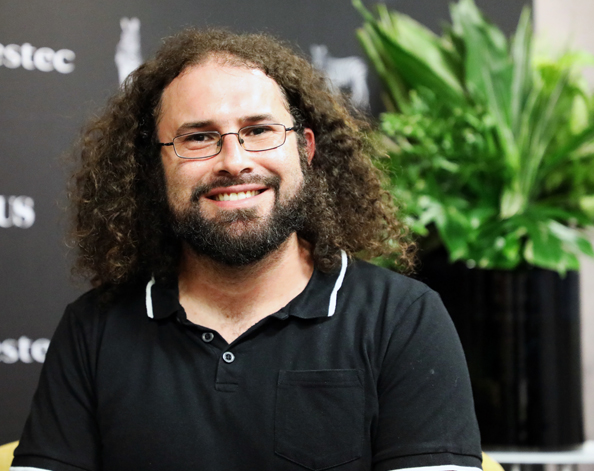Get Focus insights straight to your inbox
For many, the unrelenting technological advancement that characterises the fourth industrial revolution can seem daunting and intimidating – scary even.
As part of Investec's Focus Talk series with industry leaders, innovators and changemakers, Head of Digital at Investec South Africa, Devina Maharaj interviewed Benjamin Rosman, Associate Professor at the University of the Witwatersrand, to contextualise these developments and make sense of their relevance in the modern context.
Rosman, who is a leading researcher in robotics, artificial intelligence (AI), decision theory and machine learning (ML), explained that today, AI serves as a broad umbrella term for many different sub-disciplines.
“At its core, it's about making machines do intelligent things,” he stated.
What is supervised learning?
According to Rosman, the modern incarnation of ML is how we apply AI to data to create systems that get better at specific tasks or problem-solving through progressive exposure to more data or cumulative experience.
In this realm, two forms of ML exist – supervised and unsupervised learning.
Rosman elaborated that traditional supervised AI makes sense of formal statements and effectively breaks down the various irregularities we tend to encounter in the real world. This makes it simpler to write programs that solve difficult problems, whether that's recognising a face or translating text.
“In solving these problems, it's really hard to come up with the rules that define that problem,” explains Rosman, who offered face recognition as an example.
The old programming approach would require programmers to come up with rules, like a face has two eyes over a nose, over a mouth. “You would also have to come up rules regarding what makes an eye and how you describe an eye in an image.”
However, systems would often fail if additional variables were added, like someone's head was tilted or if they had only one eye.
Supervised machine learning solves this complexity. It enables programmers to collect millions of pictures of faces and of things that aren't faces and, instead of writing code to solve the problem, the machine figures out how to distinguish the faces using basic rules. It then continually and automatically fine-tunes its processing capabilities.
This can also be applied to various processes, like regressions where you might attempt to more accurately predict GDP growth or the weather. “That's basically supervised learning, which is probably the most commonly used and easiest ML application.”
Conversely, unsupervised learning entails giving the machine an uncategorised data set to discover some sort of structure.

My personal radical academic view on this is that jobs are immoral and we shouldn't have them. Jobs are the problem we should be solving and not the other way around.
What is reinforcement learning?
A third, more nascent area of interest in ML highlighted by Rosman is called reinforcement learning. “I think this is the really interesting AI problem – making long-term decisions.”
According to Rosman, reinforcement ML augments human decision-making to confirm whether a specific future decision is correct.
“While this is further away in terms of widespread application, the questions you can ask would be around getting a robot to navigate certain environments or making long-term business decisions.”
And it is reinforcement learning that is a forerunner to the exciting area of deep learning, where technology begins to solve more complex problems.
“Deep learning has lots of components and many layers to it, but essentially what you're effectively doing is solving what's been a thorn in ML's side for a while, which is feature engineering,” explained Rosman.
Feature engineering simplifies categorisation by adding simple variables to what would otherwise be a complex algorithm. “The challenge is finding the right features to answer the questions you care about.”
By adding additional variables, machines become better able to filter information and process what we can use to inform decisions. “However, this process requires lots of data, which is why everything's data hungry these days,” added Rosman.
Prefer to listen in the car?
Listen to the full discussion between Prof Benjamin Rosman and Devina Maharaj.
Practical applications of AI in education and healthcare
While deep learning won't offer a solution to every problem, the power of these modern techniques emerges when dealing with large structured data sets. In terms of how this could change the way we live in the world, Rosman highlighted applications in problem-solving around education and healthcare.
“Specifically, we're looking at questions around the personalisation of education. For instance, when someone engages with educational material, AI can learn something about the way they do it and can then make recommendations around how they should traverse the material to better understand it.”
Rosman also highlighted the technical work going into taking any reasonably focused task and automating it to better-than-human levels. “This is being done all the time, in anything from taking x-rays to playing video games.”
The current challenge is around building out scale by broadening what these systems can do beyond solving one problem.
“Can we, without changing anything in the underlying infrastructure, get it to solve a completely different problem and then a third one? Hopefully, as it does this, it gains more general experience and expertise and it finds it easier to solve other problems.”
And this is the major goal the industry is chasing at the moment – the idea of a broader or more general intelligence. However, predicting the future impact of this development is difficult, admitted Rosman.
How AI is already impacting the job market
4.7 million
120 million
500,000
The impact of AI on employment
“In the near-term future, we'll continue to try and automate 'the dull, dirty and dangerous jobs'.”
Of course, this raises questions around job losses and the role of humans in a society increasingly automated through technology.
“While there's obviously problems with high unemployment, there are many things that people shouldn't be doing for various reasons. And if you can free people up from certain tasks, they can focus on stuff they really care about,” explained Rosman.
In addition, Rosman believes this will create opportunities for people to do things better in the short term. Opportunities will also emerge to employ people in the ML field, where there is currently a shortage of around 500,000 skilled workers in the US alone.
Layering intelligence over various problems currently faced in broader society could also optimise the way the world functions and operates, like improved transport efficiency to reduce fuel emissions.
“This can be achieved by running certain kinds of optimisation and applying some basic learning from data, which is effectively a kind of machine learning.”
Of course, there is a longer-term discussion to be had regarding technology's impact on jobs and employment.
“The two jobs people perform are either physical or cognitive labour. There's are numerous tasks that are quite difficult and take longer, but Moravec's paradox suggests that stuff that we think is difficult is actually easier to automate.”
The real question is what should people do instead of their current jobs? “My personal radical academic view on this is that jobs are immoral and we shouldn't have them. Jobs are the problem we should be solving and not the other way around.”
Most people in the world perform jobs that are physically, emotionally or psychologically taxing, often up to 16 hours a day out of necessity to sustain them and their families.
“This is not something we should be proud of as a society. We must start preparing for the future now and think about the world we actually want to live in, which should be the best possible world we could build.”
How AI will impact the driving industry - the biggest employer in the US
7.4 million
833%
12 years
AI in Africa
As far as these challenges relate to emerging markets, Rosman believes countries like South Africa can lead the way in figuring out how industry 4.0 technology can create new jobs rather than replace them.
He also believes that there are opportunities to improve conditions in Africa and solve various immediate problems, particularly by leapfrogging legacy technologies.
“This includes the way that various apps and online markets are being used on the continent and the kinds of projects people are working on around healthcare, which are very empowering.”
Rosman is one of the founders of The Deep Learning Indaba - the annual gathering of the African AI community which has grown from 350 attendees from across the continent in 2017 to 700 in 2019. The event has attracted the attention of global tech giants like Google who support the conference financially and by sending speakers like Jeff Dean, Google's head of all AI.
In the context of AI's impact on society, Rosman suggested there are various considerations on many different levels. “What should you think about for your kids? What should you think about in terms of your career trajectory? More importantly, what do you actually get value from in your life?”
He believes your job should define the value your derive from life because what you do for income and what do you do for value aren't necessarily the same thing.
“That's probably not the way we should live. Rather, consider if you had complete freedom to do whatever you wanted, what would you actually do?”
While these are hard questions to answer, mainly because the timeframes aren't certain, Rosman asserts that we'll need to have the answers to prepare for the future.
About the author

Pedro van Gaalen
Content creator, editor and freelance writer
Pedro is an experienced communicator across print and digital media platforms based in Johannesburg. He attained a communications degree from RAU (now UJ), and began his PR and marketing career in 2000 in the motoring sector. He has built a career as a communications consultant and freelance writer, offering his experience, varied expertise and diverse background to various PR agencies, corporate clients and research houses.




